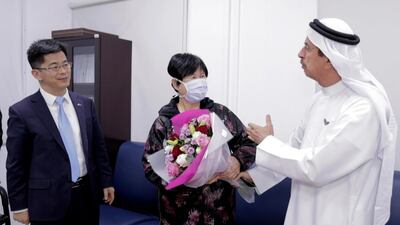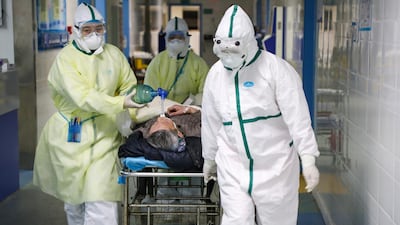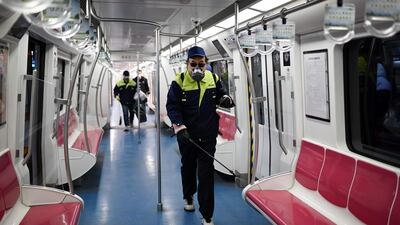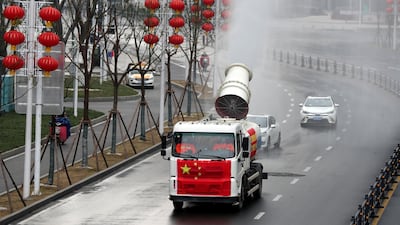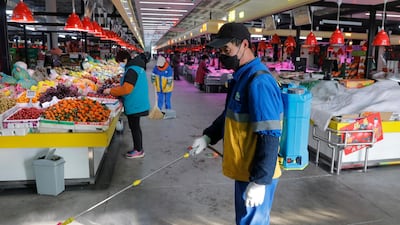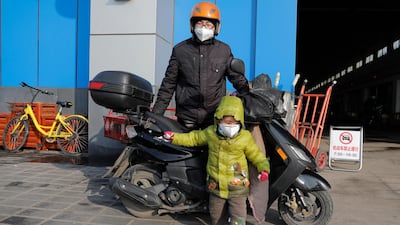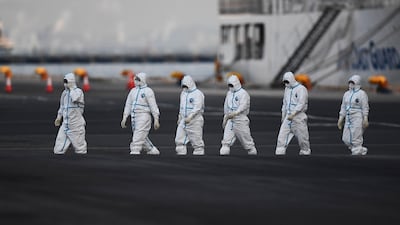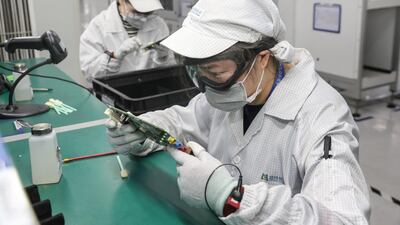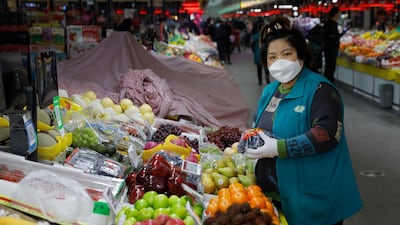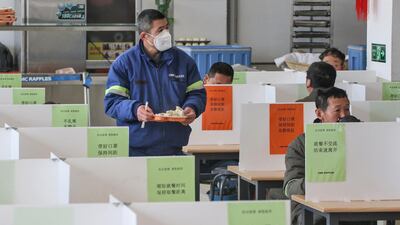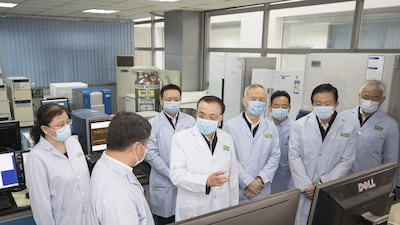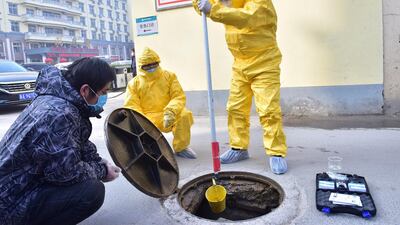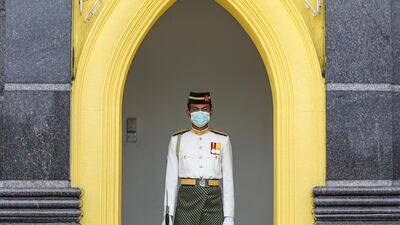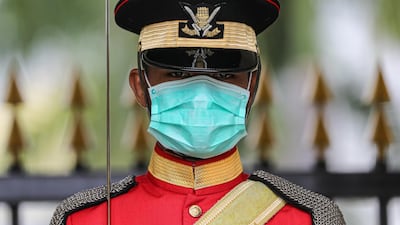Chinese expats who had contact with coronavirus patients or recently returned from virus-hit regions should observe a 14-day home quarantine and promptly report symptoms to the Emirati authorities.
Li Xuhang, China's consul general in Dubai, issued the advice as he told The National both countries are working to contain the spread of the outbreak.
The UAE is home to about 200,000 Chinese citizens. There are seven confirmed cases in the UAE, six of them Chinese and one Filipino national. There are no other confirmed cases in the Middle East.
"We have already required all Chinese citizens who had direct or indirect contact with the... patients to actively cooperate with the government and health department of Dubai on disease protection measures, to stay at home for self-segregation for 14 days," Mr Li said.
“And anyone with fever should contact the UAE Ministry of Health for screening.”
The consul spoke as a Chinese woman became the first patient in the UAE to recover from coronavirus.
Liu Yujia, 73, contracted the virus in China, then travelled to the UAE with her family and began to experience symptoms.
She was treated at an undisclosed isolation ward from January 23 and has “recovered fully and can carry on with life normally,” the health ministry said on Sunday.
Li Xuhang and Dr Hussein Al Rand, assistant undersecretary at the health ministry, visited Ms Liu and wished her well.
Soon after the first four cases, a Chinese family in holiday in the Emirates, were diagnosed last month, Chinese authorities shared their flight details. They also helped to trace their steps in the Emirates and gathered information about close contacts.
The consul said relatives of the patients infected with the coronavirus were placed under isolation as a preventive measure.
“The health department has already performed isolation treatment on all members,” he said.
Mr Li said the patients and their families are in a good condition.
Chinese embassy staff have been assigned to liaise daily with the patients, hospitals and health department.
They are aware of their “treatment in real time, to pacify their emotions and enjoin them to actively participate in relevant inspections and treatments,” Mr Li said.
The first five Chinese patients detected in the UAE with coronavirus were from two families that left Hubei province before the January 23 lockdown on Chinese cities.
No information was forthcoming from the consulate on the latest sixth Chinese patient detected with the virus this weekend.
Mr Li urged Chinese expats who went home to visit relatives during Chinese New Year to be responsible and maintain self-quarantine for the specified two weeks after returning to the Emirates.
As a precaution, the health of all Chinese citizens who left Hubei province, the epicentre of the coronavirus outbreak, and entered the UAE before the January travel clamp down are being watched.
Chinese residents who returned from Hubei last month are already past the 14-day recommended mark to watch for symptoms but will continue to be “comprehensively monitored,” he said.
He said his country was grateful to the UAE government for providing free medical treatment to coronavirus patients.
“The epidemic is temporary but the cooperation is long-lasting. In the face of the public health crisis, countries should work together to overcome difficulties, which is in the common interest of all countries,” Mr Li said.
Wuhan is the capital city of the central Chinese Hubei province where the deadly disease is believed to have first been detected in a seafood market illegally selling wild animals.
The death toll from the outbreak has crossed 900 on Monday with at least 40,000 infected by the new strain.
Medical equipment continues to be in short supply in China.
“We are open to all countries including the UAE which can provide China professional knowledge and scarce medical protective supplies,” Mr Li said.
“We appreciate all countries who help us to fight against the epidemic situation together.”
In the past few weeks, Chinese residents in the Emirates have organised collection drives and sent home millions of dirhams’ worth of face masks, protective goggles, medical overalls and gloves.
Mr Li said the country “deeply appreciated” the UAE government’s policy of free treatment for the epidemic and the support of the UAE Rulers.
Stressing the need for calm, he said the coronavirus epidemic was “currently preventable, controllable and curable.”
“Viruses are terrible, but even more terrible than viruses are rumours and panic,” Mr Li said
“People should not believe rumours.”
